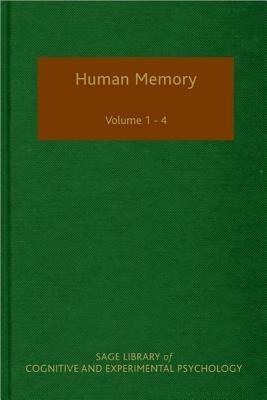Human Memory(English, Hardcover, unknown)
Quick Overview
Product Price Comparison
Our capacity to store and retrieve information has fascinated cognitive and neuropsychologists for decades, and spawned generations of researchers from across the globe to study it from many angles. Researchers are fundamentally interested in short-term memory, working memory, long-term memory, memory systems, memory impairment and different methods for studying memory, for example newer imaging technologies (for example neuroscience methods). This collection collates those articles which represent the conceptual issues in human memory and demonstrate the key contemporary themes in memory. Moreover, developments in contemporary theory often urge the student, academic or practitioner to revisit classic works. Human Memory, is separated into four volumes: Volume One studies cases of Memory Impairment. Contemporary cognitive psychology and in particular memory, is often taught from a neuropsychological angle (this covers conditions including: the amnesic patient HM, Alzheimer's disease, Down's Syndrome, Post- Traumatic Stress Disorder and Epilepsy). Volume Two covers models of Memory and Memory Systems looking at the classification and subdivisions of the memory system drawing on neuroscience models (e.g. strategic control of memory in the frontal lobes), developmental patterns (e.g. Memory Aging as Frontal Lobe impairment) and laboratory experimentation (Inhibition of memory, false memories, working memory paradigms). Volume Three focuses on Fundamentals of Human Memory and gathers together the essential empirical work on various properties of memory such as levels of processing, metacognition, and context dependent memory. Volume Four looks at Memory in Everyday Life and considers eyewitness testimony as well as autobiographical memory, navigation, and the rehabilitation of memory, plus many other real-world applications of research.


